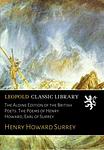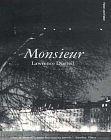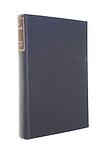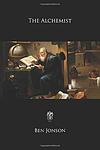The Greatest English Books of All Time
Click to learn how this list is calculated.
This list represents a comprehensive and trusted collection of the greatest books. Developed through a specialized algorithm, it brings together 300 'best of' book lists to form a definitive guide to the world's most acclaimed books. For those interested in how these books are chosen, additional details can be found on the rankings page.
Genres
Countries
Date Range
Reading Statistics
Click the button below to see how many of these books you've read!
Download
If you're interested in downloading this list as a CSV file for use in a spreadsheet application, you can easily do so by clicking the button below. Please note that to ensure a manageable file size and faster download, the CSV will include details for only the first 500 books.
Download-
26. Plays by Francis Beaumont
This book is a collection of dramatic works by a prominent English playwright from the early 17th century, known for his collaborative writing with a fellow dramatist. The plays within this compilation showcase a range of genres from comedy to tragedy, often characterized by their wit, intricate plots, and the exploration of themes such as love, jealousy, and social satire. The playwright's work is notable for its influence on the development of English theater and its reflection of the Jacobean era's complex societal norms and preoccupations.
-
27. The Duchess Of Malfi by John Webster
The play is a dark Renaissance tragedy that tells the story of a young widow, the Duchess, who defies her two corrupt brothers by secretly marrying her steward, Antonio, with whom she has three children. Her brothers, one a twisted cardinal and the other a mentally unstable duke, are driven by greed and power. They employ a spy, Bosola, to uncover her secret, leading to a series of tragic events. The brothers' quest for control results in a bloody and vengeful cycle of murder, madness, and betrayal, ultimately leading to the downfall of almost every main character in a grim commentary on the corrupting nature of power and the vulnerability of women in a male-dominated society.
-
28. The Poetical Works Of Robert Herrick by Robert Herrick
This collection assembles the lyrical poetry of a 17th-century English Cavalier poet known for his carpe diem philosophy and his mastery of the short lyrical form. It includes a variety of poems ranging from amorous verses, pastoral poems, and epigrams to elegies and religious musings. The poet's work is characterized by its wit, classical allusions, and a celebration of the pastoral life, as well as its exploration of the themes of love, nature, and the fleeting nature of human life. His most famous poem, which advises readers to seize the day and not waste time, is emblematic of his ability to blend the sensual with the spiritual, creating a body of work that has resonated through the centuries for its charm, accessibility, and depth.
-
29. Poems Of Henry Howard by Henry Howard
This collection is an assemblage of Renaissance poetry by an influential English nobleman, often credited with pioneering the use of the English sonnet form before Shakespeare. The poems reflect a range of themes, from romantic and courtly love to reflections on morality and the human condition, showcasing the poet's linguistic dexterity and deep engagement with the literary and cultural currents of his time. The work is notable for its early use of blank verse and for capturing the transition between the medieval world and the early modern era, offering insight into the intellectual and emotional landscape of the Tudor court.
-
30. The Revenger's Tragedy by Cyril Tourneur
"The Revenger's Tragedy" is a dark and satirical Jacobean play that centers around a protagonist seeking vengeance for the death of his betrothed, who was poisoned by a corrupt and lascivious Duke. The protagonist, disguised and fueled by rage, navigates a court filled with depravity, plotting the downfall of his enemies. As he enacts his revenge, the play delves into themes of morality, justice, and the destructive nature of revenge itself, culminating in a bloody and dramatic conclusion that serves as a grim commentary on the decay of societal values.
-
31. Jerusalem The Golden by Margaret Drabble
"Jerusalem The Golden" follows the life of a young woman named Clara who is torn between her intellectual ambitions and her desire for love and companionship. Set in 1960s London, the novel delves into Clara's struggles with her family, her relationships, and her own identity as she navigates through the changing social and political landscape of the time. With its vivid portrayal of Clara's inner conflicts and the vibrant backdrop of the city, the book offers a poignant exploration of the complexities of personal and societal expectations.
-
32. A House Of Children by Joyce Cary
"A House of Children" is a compelling novel that delves into the lives of the Clare family, who live in a grand house in the English countryside. Set during the interwar period, the story follows the three children as they navigate their privileged yet tumultuous upbringing. With a keen eye for social dynamics and the complexities of family relationships, the author explores themes of class, power, and the impact of societal expectations on individual lives. As the children grow older, they confront their own desires and ambitions, ultimately questioning the values and traditions that have shaped their lives.
-
33. Monsieur, Or The Prince Of Darkness by Lawrence Durrell
"Monsieur, Or The Prince Of Darkness" is a captivating novel that explores the complex and enigmatic life of a man known as Monsieur. Set against the backdrop of post-war Europe, the story delves into Monsieur's mysterious past, his involvement in espionage, and his relationships with various intriguing characters. Through vivid prose and intricate storytelling, the book delves into themes of identity, love, and the blurred lines between good and evil, leaving readers questioning the true nature of Monsieur until the very end.
-
34. The Voyage by Charles Morgan
"The Voyage" by Charles Morgan is a gripping tale that follows the journey of a group of individuals aboard a ship, each with their own secrets and motives. As they navigate treacherous waters and encounter unforeseen challenges, tensions rise and alliances are tested. With vivid descriptions and intricate character development, the book explores themes of love, betrayal, and the human capacity for resilience in the face of adversity.
-
35. The Root And The Flower by L. H. Myers
"The Root And The Flower" is a captivating novel that explores the life of a young Englishman named Richard Anger who travels to India in search of his identity. Set against the backdrop of the British Raj, the story delves into themes of cultural identity, love, and the clash between Eastern and Western values. As Richard navigates the complexities of Indian society, he becomes entangled in a web of relationships and encounters a diverse cast of characters that challenge his beliefs and force him to confront his own prejudices. This thought-provoking and beautifully written novel offers a profound exploration of self-discovery and the transformative power of love.
-
36. The Book Of Margery Kempe by Margery Kempe
"The Book of Margery Kempe" is considered one of the earliest autobiographies in English, detailing the life and spiritual experiences of its author, a medieval mystic and pilgrim. The narrative captures her profound religious visions, her tumultuous emotional responses to them, and her extensive pilgrimages to holy sites across Europe and the Holy Land. It also explores her struggles with societal norms, her confrontations with religious authorities, and her quest for spiritual validation. The book provides a vivid insight into the complexities of medieval spirituality and the challenges faced by a woman asserting her religious authority in the Middle Ages.
-
37. Ecclesiastical History Of The English People by Bede
This book is a seminal historical work that chronicles the Christianization of the Anglo-Saxon tribes of England, spanning from the arrival of St. Augustine in Kent in 597 AD to the time of the author in the early 8th century. It combines theological discussion with historical narrative, detailing the rise of Christianity, the conflicts between the Roman and Celtic traditions, the lives of prominent saints, and the establishment of monastic centers. The author, a monk and scholar, uses a variety of sources to compile a history that is both a spiritual record and a valuable document of early English history, emphasizing the role of the church in unifying and educating the diverse peoples of England.
-
38. Grace Abounding To The Chief Of Sinners by John Bunyan
"Grace Abounding to the Chief of Sinners" is a spiritual autobiography that delves into the author's profound journey from a life marred by sin and despair to one transformed by divine grace. The narrative vividly describes his struggles with faith, his bouts with demonic temptations, and his ultimate quest for redemption. Through his introspective exploration, the author offers a detailed account of his spiritual awakening, his painstaking conflicts with religious doubts, and his eventual embracing of a life devoted to serving God. This work not only reflects the author's personal spiritual journey but also serves as an inspirational guide for others seeking redemption and enlightenment.
-
39. The Alchemist by Ben Jonson
The book in question is a comedic play set in early 17th-century London, where a clever trio of con artists—Subtle, Face, and Dol—takes advantage of urban fear and superstition during a plague outbreak to swindle a series of gullible victims. Using the guise of an alchemist capable of performing miraculous transformations, the group promises wealth and power to their targets, spinning a web of deceit and exploiting human greed and folly. The play unfolds as a series of farcical episodes, culminating in the inevitable unraveling of their schemes, offering a satirical critique of human credulity and the pretensions of pseudo-science.
-
40. Edward Ii by Christopher Marlowe
The play is a historical tragedy that revolves around the reign of a flawed monarch whose personal weaknesses lead to his downfall. It explores the king's intense and controversial relationship with his favorite, Gaveston, which incurs the wrath of the nobility, his wife, and ultimately contributes to his loss of power. Themes of political ambition, betrayal, and the struggle for authority are central as the king's inability to manage his affections and the demands of his throne result in civil strife and his eventual violent demise. The play is a study of a ruler undone by personal failings and the ruthless machinations of those around him, set against the backdrop of the political complexities of medieval England.
-
41. A Mad World, My Masters by Thomas Middleton
This satirical comedy from the early 17th century presents a tapestry of London life through a series of interwoven plots featuring a diverse cast of characters, including a con artist, a lustful knight, and a cunning courtesan. The play delves into themes of deception, social corruption, and the pursuit of pleasure, revealing the vices and follies of the city's inhabitants. With a sharp wit and an unflinching eye for the absurdities of human behavior, the narrative unfolds in a series of comedic escapades, ultimately offering a biting critique of a world gone mad with greed and hedonism.
Reading Statistics
Click the button below to see how many of these books you've read!
Download
If you're interested in downloading this list as a CSV file for use in a spreadsheet application, you can easily do so by clicking the button below. Please note that to ensure a manageable file size and faster download, the CSV will include details for only the first 500 books.
Download














